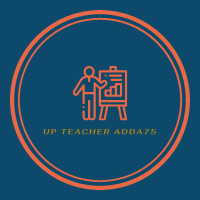TEACHER SECTION
This Teacher section option provide four option to teacher to help them in there teachings
1)NEP 2020
2)DIKSHA
3)NIPUN
4)TEACHING PLAN
NEP 2020
The New Education Policy (NEP) 2020 is a policy document that outlines the vision for the future of education in India. The policy was approved by the Union Cabinet of India on July 29, 2020. The NEP 2020 aims to bring major reforms in the Indian education system, focusing on improving the quality of education, making it more inclusive, and preparing students for the challenges of the 21st century.
Some of the key highlights of the NEP 2020 include:
Introduction of a 5+3+3+4 curricular structure, which includes 12 years of schooling with 3 years of pre-primary education and a restructured pedagogical and curricular design for school education.
Emphasis on early childhood care and education, and the introduction of a National Curricular and Pedagogical Framework for Early Childhood Care and Education (NCPFECCE).
Introduction of a new National Education Policy Commission, which will act as a single umbrella body for all educational institutions in the country.
Promotion of multilingualism and the mother tongue as a medium of instruction until at least Grade 5.
Introduction of a new National Assessment Centre, PARAKH, to assess the progress of students in a comprehensive and regular manner.
Increased focus on vocational education and skill development, and the establishment of a National Skills Qualifications Framework.
Introduction of a new system for higher education, including a new regulatory body, the Higher Education Commission of India (HECI), and the separation of the regulation of higher education institutions from their funding.
These are just a few of the key highlights of the NEP 2020. The policy aims to bring major reforms in the education sector and is expected to have a far-reaching impact on the Indian education system in the years to come.
DIKSHA
DIKSHA is an Indian educational technology platform launched by the Government of India's Ministry of Human Resource Development (now Ministry of Education) in 2017. The platform provides digital and interactive learning material for teachers, students, and parents in multiple Indian languages.
The DIKSHA app is available for free download on Android and iOS devices. It offers a variety of resources such as videos, textbooks, assessments, and interactive games that can be accessed by teachers, students, and parents. These resources are designed to support learning for students from primary to high school level.
Teachers can use the DIKSHA app to access teaching aids, lesson plans, and training modules to help them enhance their teaching skills. They can also use the app to create and share content with their students.
Students can use the app to access learning material, practice quizzes and assessments, and to interact with their peers and teachers. Parents can use the app to monitor their child's progress, view content that is being taught in the classroom, and provide feedback to the teacher.
DIKSHA has been adopted by several Indian states as a part of their digital learning initiatives. The app has received positive feedback from users and has been recognized by international organizations such as the United Nations Educational, Scientific and Cultural Organization (UNESCO) for its contribution to the field of education.
NIPUN
NIPUN stands for National Initiative for Proficiency in Reading with Understanding and Numeracy. It is an initiative launched by the Ministry of Education, Government of India, aimed at improving the foundational literacy and numeracy skills of children in the country. The initiative focuses on enhancing the reading, writing, and math skills of children in grades 1 to 3, which are considered to be crucial for their academic success in later years.
Under the NIPUN initiative, various measures are being taken to ensure that all children achieve the desired learning outcomes in reading and math. These measures include developing and distributing age-appropriate learning materials, conducting regular assessments to track progress, and providing remedial support to children who are falling behind.
The NIPUN initiative aims to bring about a systemic change in the way foundational skills are taught in schools across the country. It emphasizes the importance of using evidence-based teaching methods, involving parents and communities in the learning process, and providing continuous professional development opportunities for teachers to improve their skills.
The NIPUN initiative is seen as a critical component of the Government of India's larger education reform agenda, which aims to improve the quality of education and ensure that all children have access to equitable and high-quality learning opportunities.
TEACHING PLAN
A teaching plan is a detailed document that outlines the objectives, goals, and strategies for a specific lesson or series of lessons. A teaching plan can be used by teachers to organize their lessons and ensure that they are covering all the necessary topics and skills.
The following are some key elements that can be included in a teaching plan:
Learning objectives: Clearly state what students should be able to know, understand or do after the lesson.
Curriculum standards: Specify the relevant standards or competencies that the lesson aligns with.
Assessment and evaluation: Describe how learning will be assessed and evaluated, including formative and summative assessments.
Learning activities: Outline the activities that will take place during the lesson, including any group work, discussion, or hands-on activities.
Instructional materials: List any materials or resources needed for the lesson, such as textbooks, videos, or handouts.
Differentiation: Describe any accommodations or modifications that will be made to meet the diverse learning needs of students.
Technology integration: Include any technology or digital tools that will be used to support learning.
Closure: Summarize the key concepts and skills learned during the lesson and provide an opportunity for students to reflect on their learning.
A teaching plan can be modified or adjusted based on the needs of individual students, classroom dynamics, or unexpected events that may occur during the lesson.
We will keep updating on each and every option in teacher section.

कोई टिप्पणी नहीं:
एक टिप्पणी भेजें
Leave your comment below